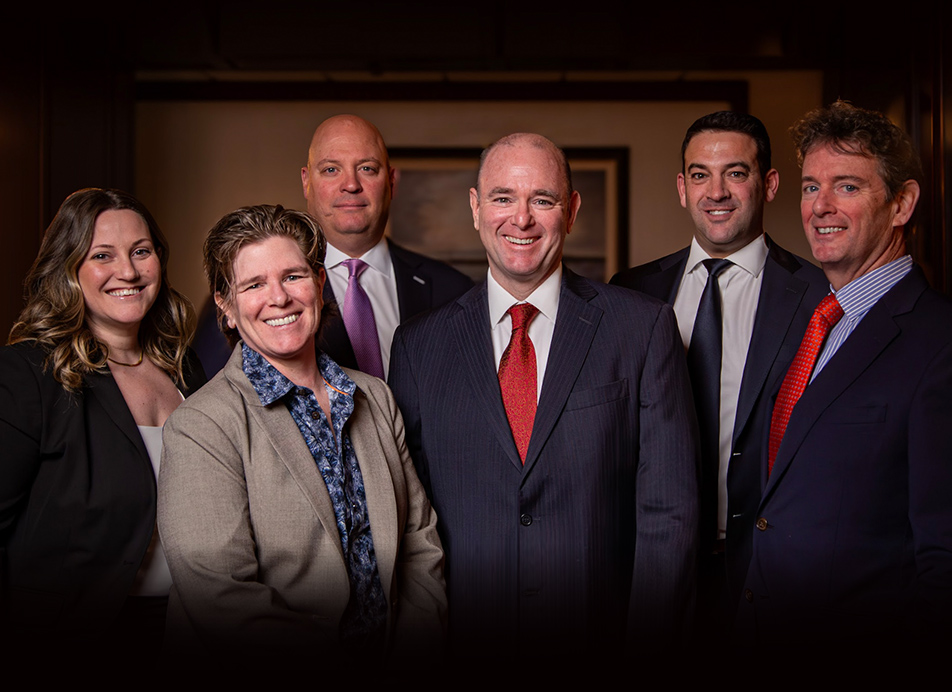Table of Contents
There’s never a good time to learn about a cancer diagnosis, but luckily we live in a time where medicine and help is readily available. If you’re looking for a lung cancer lawyer in New York or Long Island there are steps you can take to get help immediately.
What You Need to Know About Lung Cancer
Getting a lung cancer diagnosis can often leave you with a lot of questions and concerns. Many people don’t know what to do next or what their options are in the immediate aftermath of a diagnosis.
In this article, we’ll discuss what lung cancer is, what causes lung cancer, the common symptoms, and treatments, and when you might have a legal case for compensation in New York for your respiratory sickness.
Here’s what you need to know so you can start planning a way forward and possibly planning a lung cancer lawsuit in New York.
What Causes Lung Cancer?
According to the American Cancer Society, there is a wide range of different causes of lung cancer, and different causes can impact the progression of the disease and which type of pulmonologic cancer you get.
Unfortunately, pulmonologic sickness is still the leading cause of cancer deaths worldwide, which makes it an incredibly important and challenging form of cancer.
Understanding the common causes of pulmonary cancer is one of the first steps to understanding a recent lung cancer diagnosis or avoiding the risk factors of lung cancer so you’re less likely to develop the disease.
Here are some of the most common causes of lung cancer:
- Smoking
- Second-hand smoke
- Pollution
- Asbestos exposure
- Radon exposure
- Chemical and element exposure at home or in the workplace
- Diesel exhaust exposure
- Talc and talcum powder exposure (especially mining)
- Mining
- Inherited and acquired gene changes
Of these, smoking and secondhand smoke are some of the likeliest causes of lung cancer, but almost any contaminants in the air can contribute to respiratory tumors.
Healthcare professionals in New York and Long Island should be told about any and all known risk factors you have for lung cancer, both so they can arrange an appropriate screening, and because your risk factors may impact the type of treatment needed after a diagnosis.
It’s also important to know that your risk factors and cancer causes can change the kind of cancer you develop as well as impacting your risk of developing cancer in the tissues of the lung. Cases of lung cancer in smokers and non-smokers are often significantly different because of the different types of cancer and underlying conditions.
Cigarette smoke in the lungs is identified as one of the main causes of respiratory illness, but all smoke can be potentially dangerous. Your risk of lung cancer goes up from smoking, being around smoke, and especially from being exposed to high concentrations of smoke for a long time.
Lung Cancer Symptoms
Knowing the symptoms of lung cancer can be helpful for early detection, especially if you have a lot of risk factors that make you more likely to develop bronchiogenic carcinoma. It’s also important to know that there are two main types of lung cancer and that they may present different symptoms and require different treatments.
The most common form of pulmonary carcinoma in NYC is non-small cell lung cancer, or NSCLC, which accounts for 80-85% of all lung cancers. There are four subtypes of cancer included under NSCLC, but they’ll have more symptoms in common than not.
The other main type of respiratory tumor is small cell lung cancer. Small cell lung cancer only accounts for about 10-15% of all lung cancers, but it’s often the more aggressive form and a large percentage of patients have already had the cancer spread by the time they get a diagnosis.
Here are some of the common symptoms of lung cancer:
- New cough
- Chronic cough
- Persistent wheezing
- Chest pain
- Hoarseness
- Chest pain that worsens with deep breathing, coughing, or activity
- Shortness of breath
- Sudden weight loss
- Fatigue and weakness
- Coughing up blood or reddish phlegm
- Frequent bronchitis or pneumonia
- Bone pain
- Nervous system changes
- Jaundice (yellowing of the skin or eyes)
- Swollen lymph nodes
In some cases, you may also develop syndromes in addition to or instead of individual symptoms. Horner syndrome, which includes eyelid weakness of one eye, a smaller pupil in one eye, and reduced sweating on one side of the face is one common sign. This is most common when the cancer is mostly in the upper part of the lung, especially if it’s forming lung tumors in the upper portion.
Superior vena cava syndrome is another common syndrome with lung cancer and occurs when lung tumors form near the upper portion of the right lung and put pressure on the superior vena cava (SVC). This syndrome can cause headaches, dizziness, swelling in the face and neck, and may cause a change in consciousness or blue-red skin color in the upper body.
Know the Symptoms and Avoid Wrongful Death
There are also a wide range of paraneoplastic syndromes that can be among the first signs of lung carcinoma since they can happen even with early stages of cancer. The lung cancer symptoms include nervous system problems, Cushing syndrome, blood clots, and higher than average levels of calcium in the blood.
You may have noticed that this list of possible symptoms is rather long and includes a wide range of potential symptoms. That’s because respiratory carcinoma and other cancers doesn’t have too many unique symptoms or identifiable symptoms on its own. Rather it’s the combination of your symptoms and risk factors that help healthcare providers decide when you need testing and when you might be at elevated risk.
Lung Cancer Treatments
The kinds of treatments you need for lung cancer vary depending on the exact type of cancer you have, its stage, and the other risk factors that may complicate your treatment. It’s for these reasons why you should consult NYC or New York lawyers to get an idea of the appropriate law. Depending on which of the major types of cancer you have, your healthcare provider might also recommend enrolling you in clinical trials of new treatments and experimental procedures to help improve your chances.
Your treatments will also depend on your lung cancer symptoms and how well you tolerate different kinds of treatments. There are a lot of treatment options for lung cancer, but many doctors recommend being aggressive since lung cancer is the leading cause of cancer deaths worldwide.
Get Your Lung Tumor or Cancer Diagnosis Early
In New York, one of the first steps of lung cancer treatment is usually a chest x-ray to image the cancer and see how widespread it is in the lungs. The chest x-ray can also help determine if other scans or tests are needed to see if cancer has spread, and what treatment options you have.
There are usually more treatment options if you get an early diagnosis, but you’ll still have some options even in the later stages of cancer including legal ones like filing a lawsuit.
Your healthcare providers may recommend a lung biopsy or other procedures to harvest some tumor cells and help determine what type of cancer you have, and see how advanced any lung tumors or cancerous lesions have become.
It’s common for lung cancer patients to be given a cancer care team. Having a cancer care team is important because you’ll need multiple treatments from different specialties, like Thoracic surgeons, psychological care providers, chemo specialists, and even someone to monitor and make sure you’re taking a healthy combination of medications. Your team also helps provide a second opinion and give you more treatment options no matter what stage of cancer you have.
If you’re healthy enough, surgical removal of some or all of the cancer is often a part of initial treatment. In some cases, like early-stage cancer, surgery may be the only treatment you need. There are many different types of surgery for pulmonary tumors, but it’s important to be matched to the type of lung cancer surgery most appropriate for your type and stage of cancer.
Chemotherapy, radiation therapy using radiation beams, and a wide range of alternative treatments may all be recommended. If you aren’t currently healthy enough for surgery, these treatments might be the primary treatment until your health has recovered and surgery is an option.
If you’re suffering from advanced stages of lung cancer, your care team may recommend palliative care instead of clinical care. Palliative care is meant to keep you comfortable and keep the discomfort of the cancer to a minimum but doesn’t attempt to cure or slow the progression of the disease.
Usually, palliative care is only recommended in the most advanced cases, or after other treatments have failed. But it may be recommended if your health prohibits most of the effective treatments for the cancer.
How Can a Lung Cancer Attorney Help?
If you’ve been diagnosed with lung cancer, especially if your respiratory malignancy may be related to chemical or radioactive element exposure, work-related, or if your cancer could have been diagnosed sooner than it was, you may have a lung cancer case. In which case, that is the best time to consult lawyers or an attorney to learn about your rights under the law.
How Can We Help?
Please complete the form below and a member of our team will get in touch with you as soon as possible.
Win Your Lawsuit with a Trusted Medical Malpractice Law Firm
Getting an experienced lung cancer lawyer can help you determine if you have a case if you might be eligible for compensation and if it’s worth pursuing legal options such as a lawsuit.
If you’re looking for the best lung cancer attorney or lawyers, especially if you need a NY lung cancer lawyer, Duffy & Duffy can help you navigate the law. We have a team of some of the highest-rated lung cancer attorneys and are ready and willing to help you win your lawsuit or compensation case for people in New York City, Long Island, and anywhere in New York.
Don’t wait for the costs of pulmonology treatment to pile up. If you need a lung cancer attorney, contact Duffy & Duffy as soon as possible if you’re in NYC, New York, or Long Island so we can get started.
Final Thoughts On Lung Cancer and Lung Cancer Cases
Lung carcinoma is one of the most frightening kinds of cancer, but that doesn’t mean that it’s not treatable or that the rest of your life is going to be defined by cancer, especially if you consult our lawyers. Take a moment to think, calm down, and contact a New York and Long Island lung cancer lawyer to get the help with the law you need.
Breaking Bad might make for great television, but you shouldn’t go that route to deal with your diagnosis. You deserve to work with the top lung cancer lawyers and attorneys to get the lawsuit compensation you deserve and need to handle your cancer bills.












